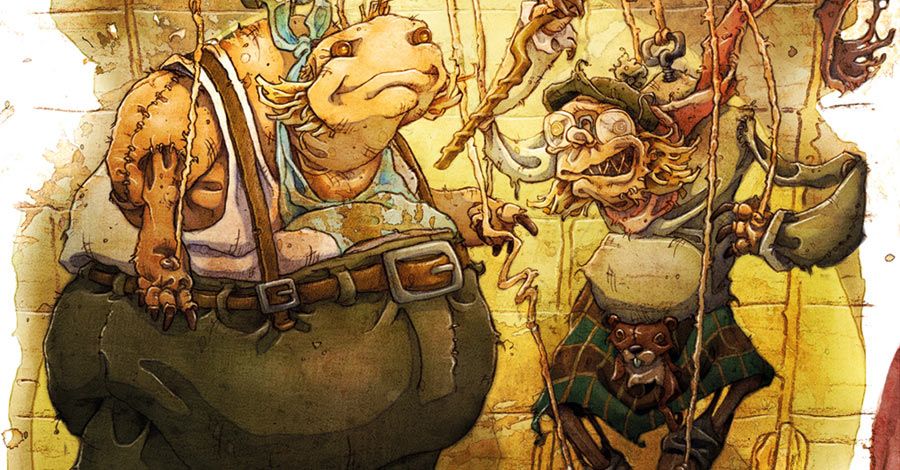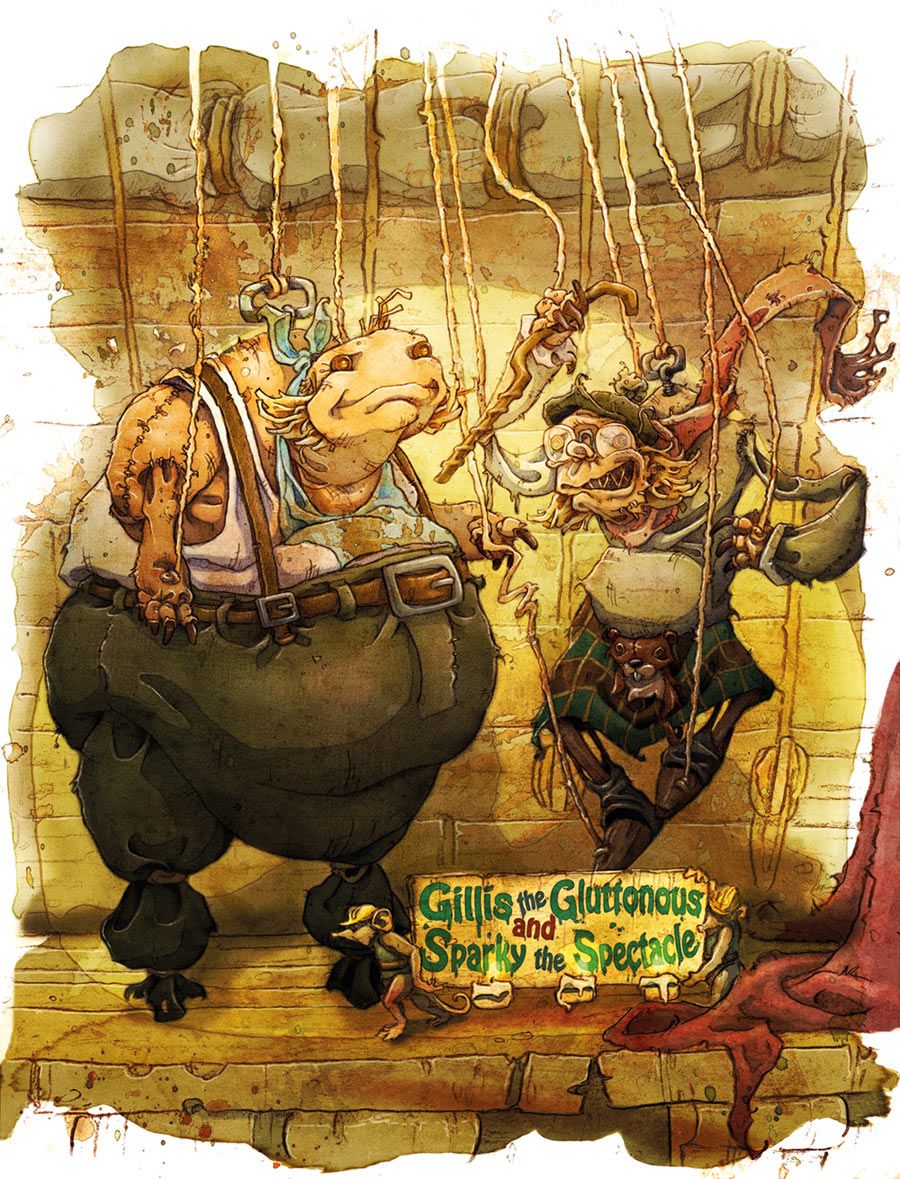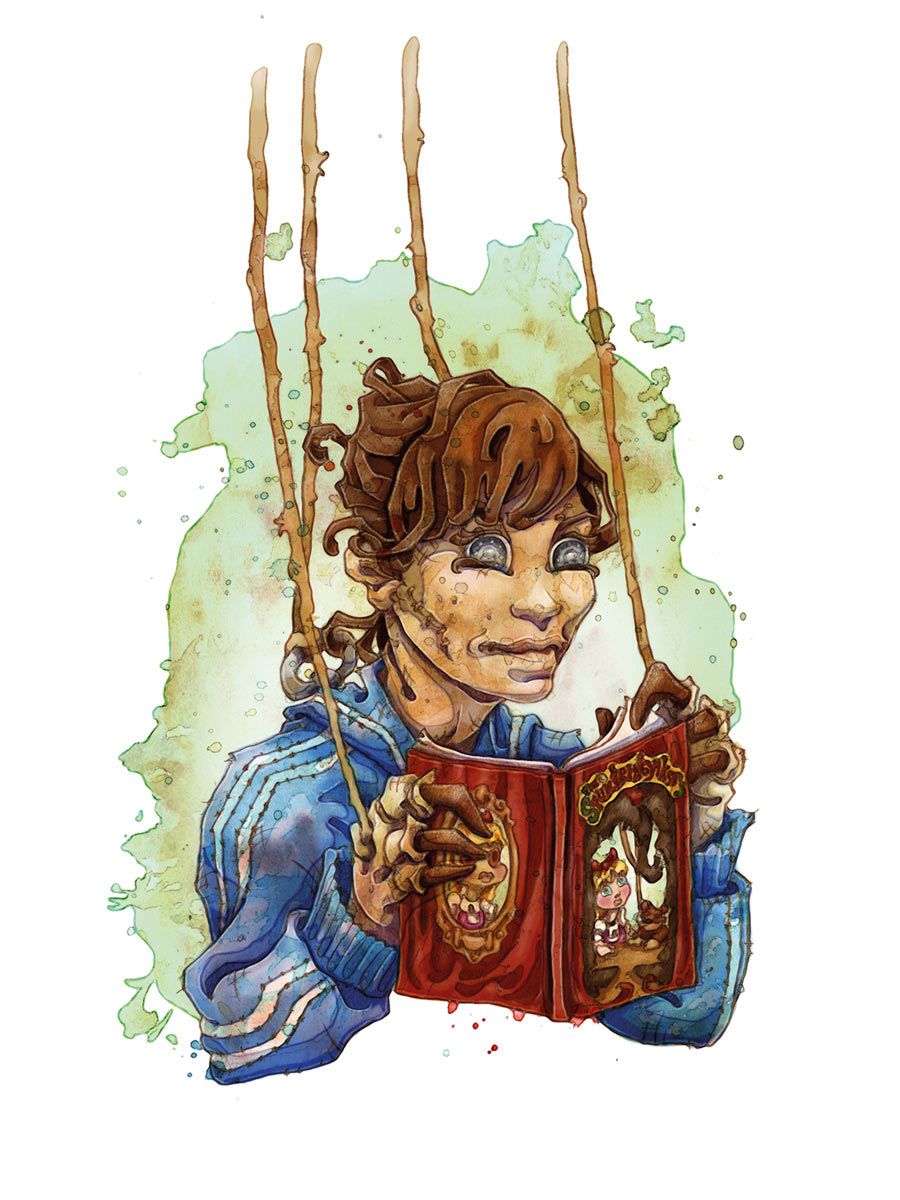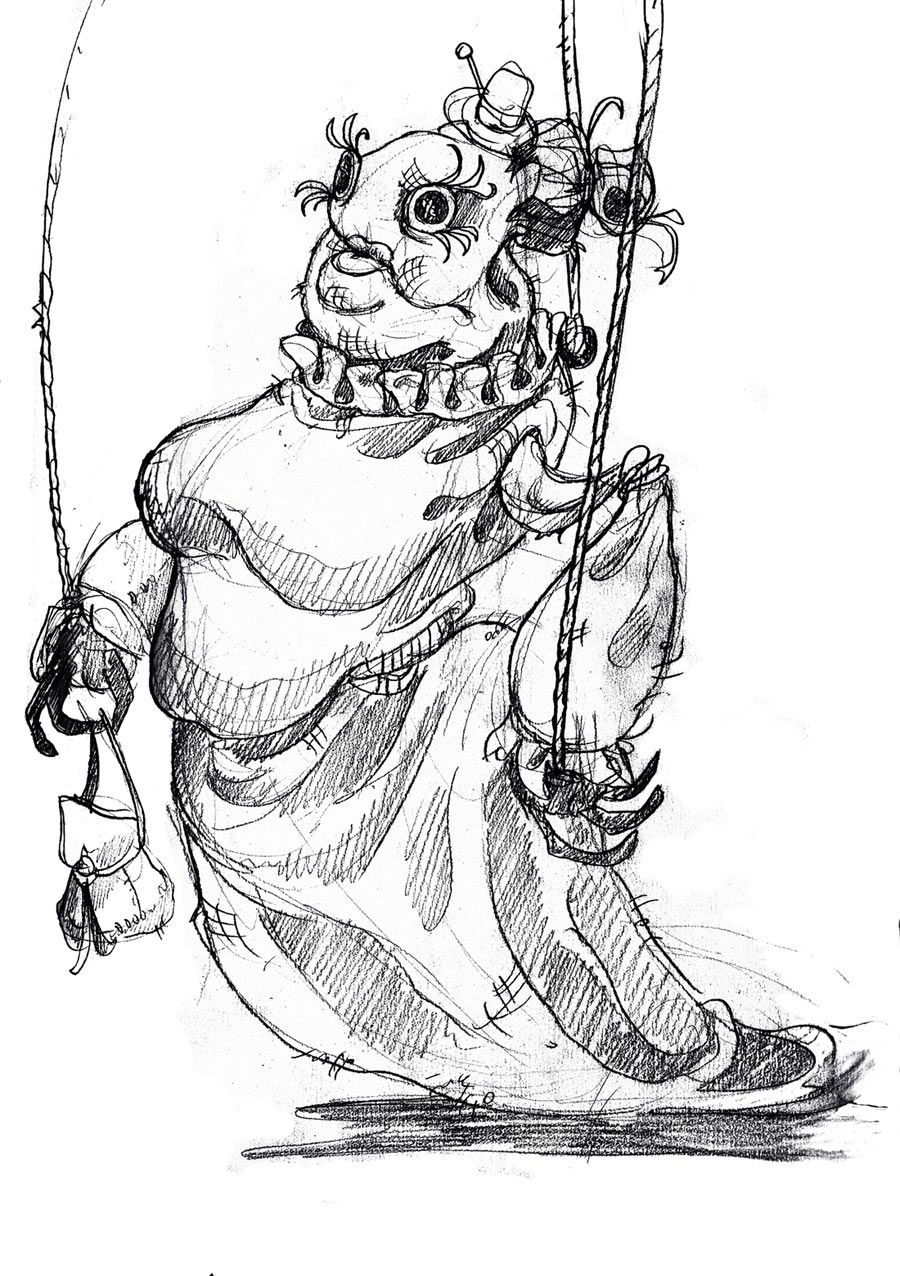Though she's gained fame as an actress, Evangeline Lilly is happy to tell you that her first passion is writing. She's currently busy filming her role as Hope Van Dyne in Marvel Studios' "Ant-Man," but even as she spends her days on the set of the superhero movie, her first book is about to hit shelves. "The Squickerwonkers," written by Lilly and illustrated by Johnny Fraser-Allen, debuting November 18 from Titan Books, is a children's book starring a spoiled little girl named Selma. After meeting a group of living marionettes -- the titular Squickerwonkers -- Selma finds herself tangled up with them, changing her life forever.
CBR TV: Evangeline Lilly Lives Her Dream with "The Squickerwonkers"
Though "The Squickerwonkers" is just now being published, the story has been with Lilly for 20 years. Of course, there have been changes from the initial concept over the years, and when we spoke with Lilly in between takes on "Ant-Man," she explained how her story has grown, her plans for this being the first in a series of "Squickerwonkers" tales, and how rejections from publishers only served to make her more determined to see her story in print.
CBR News: The story of "The Squickerwonkers" has been with you for 20 years. How has the story evolved in that time?
Evangeline Lilly: I've had this story with me since I was 14. It has been in my mind for all this time. The story started out as a little girl who gets her balloon popped by a group of motley outcasts who ultimately inherit her intended fortune, and that's always been the story. That's never changed. That's always been the base of it, but I originally just thought it was one little poem. I hadn't envisioned it being a series of poems, and I never knew exactly what the Squickerwonkers would be. I knew they would be human, but not human. That was always how I described them.
I thought, "Well, I know they're not human like how I'm human," but I also know that a child would be able to identify them as a human-like character, as opposed to a bear, or a cat or an alien or something else. It wasn't until Johnny Fraser-Allen came into the picture and he brilliantly proposed the puppets in the wagon that "The Squickerwonkers" really started to take shape. That was one of the most exciting parts of the process, was working collaboratively with Johnny to really discover and uncover the story within the story and the breadth of the series.
This is part one -- how long are you planning the series to be?
The series is meant to be 18 books. I've had other journalists who when I told them that say to me, "Oh, my God, if you do this whole series, by the time you finish, you're going to be in your fifties and your son will be graduating from college." Hopefully, I can do more than one book a year and that won't be the case. Ideally.
The rhyming is charming, but does that make writing trickier? Do you use tools or apps to help find words that fit?
I never used to, because there never used to be any tools or tricks. Nowadays, there are. It's amazing what the Internet has done for writing. There are all kinds of websites that you can go to -- "words that rhyme with..." sites, essentially. I have taken to using those here and there, but I try to only use those in the editing process. With the original poem, I try to let it flow out naturally without being too contrived, because sometimes if you push too hard for a rhyme, you lose a sense of the story, or you lose a sense of the meaning that you're trying to get across in the stanza. Usually when I'm doing my rewrites, and sometimes if I'm trying to make the meter perfect, I'll go and find rhyming words online.
I just find that rhyme is a wonderfully limiting tool. One of the struggles I think a lot of writers have, including myself, is that your options are unlimited. In any story, you can take it in any direction you want to go. You can do anything with it you want to, and sometimes, the hardest part of determining what you're going to do as a writer is when you're trying to decide what not to do. With rhyming, it helps limit you; it helps give you parameters where, sometimes you'll think of a wonderful stanza that has an incredible line and you'll go, "Oh, okay, I guess that's where the story is going to go."
The story of "The Squickerwonkers" is little grungier and darker than the average children's book. Did that make it challenging to get a publisher?
Absolutely, it did. It made it almost impossible to find a publisher because -- I won't name any names, but I got a lot of flat-out 'Nos.' The number one complaint was, it was too sophisticated for children, and it was too dark for children. I had actually one of the major publishers, one of the bigwigs, say to me, flat out, "This book will not succeed." I took that as a challenge. I was like, "I can't wait for my book to be such a success, and I can come back and rub it in your face," because it was so defeating, it was so absolute. It wasn't, "In my opinion," or, "It's not the style [we want]." It was, "Nobody will read this book." I definitely feel that if you come across a lot of resistance, it can mean you're really on to something. I just took that as encouragement and carried on trying to find the right fit with a publisher -- somebody who wouldn't be afraid to approach a book that didn't fit the mold of what most children's storybooks are doing right now.
Is Titan set to publish the entire series?
No, Titan is set to publish the first two books. Then I'll be a free agent again, and I will either carry on with them, or look for somebody else. Right now, we're focused on the second book -- it's in the editing process, and then we'll head into storyboarding and illustration. I was really excited that they really wanted to do two books because I feel like "The Squickerwonkers" won't hit its stride until about book five. I feel like this book is very much an introduction, and the world will really realize itself and the rhythm of the story and the sense of what the series is doing will come into its own around book five. So I was glad to know more than one book would be coming out into the world.
We only scratch the surface in the first book, but the world we see certainly is rich. Did you have the worldbuilding aspects outlined ahead of time, or did it sort of happen as the story evolved?
No, one of the things that took a lot of time and held us back from getting to work at the beginning was that we [Johnny and I] really wanted to have a sense of both the world and the entire series before creating the first book. Both of us really love and appreciate good, layered storytelling, where when you get book thirteen, there's a little reference that you had in book one, and it sort of pays off later on, in book thirteen, or fourteen, or ten, or nine. We wanted to, as best as possible, cover all of the bases in the first book so that there would be no elements of the story that would come into play where we would say, "Ah, if only we had known that in the first book, we could have done this, or we would have cut it out." So we did a lot of homework. We did a lot of preparation. I have outlined the whole series. I know what each book will be about, how the story will play out, and I know the beginning, middle and ending.
Speaking of Johnny, his art style really enriches your story. How did you find him?
Johnny was working at the Weta Workshop in New Zealand, and Weta Workshop worked very closely, hand in hand, with Peter Jackson and his films. He's actually one of the founders of the company. I had to go to the Weta Workshop for fittings and for different elements of my job as Tauriel [in the "Hobbit" films], and when I was there, I was just so incredibly inspired by the creativity and creation that was happening. The workshop really encourages young artists to explore what they want to do with their talents outside the workshop. I was inspired to finally pursue my dream of being a writer, which I had been talking about doing for about five years, but I was finding -- I was getting my legs. I was trying to start it. And I was like, "Okay. It's time. It's time for me to do it. I've got to do it right now, because there are all of these incredible artists who are around me, and I could really take advantage of this opportunity."
So I went to Richard Taylor, who ran the workshop, and I said, "I've got these children's stories. Are any of your illustrators interested in working with me?" Johnny Fraser-Allen jumped at the opportunity, and then the rest is history.
With so many books planned, you'll probably be busy with "The Squickerwonkers" for a little while, but do you have any other writing projects in the works?
I actually have plans for 2015 so long as Marvel doesn't get in the way because, of course, there will be additional shooting for "Ant-Man," and I have no idea of when that will be. But my plan for 2015, as of right now, is to work very intensely on my next writing project, building out my next world. "The Squickerwonkers" has been three years coming, and it's because I'm creating a whole world and I'm creating a whole series that it's taken so much time. I took two years off work to commit to that -- well, I should say off acting to commit to that. I'll be doing the same thing in 2015 for my next big, world-creating project, and that one will hopefully manifest as a graphic novel series or a new adult novel series.
"The Squickerwonkers" goes on sale on November 18.





